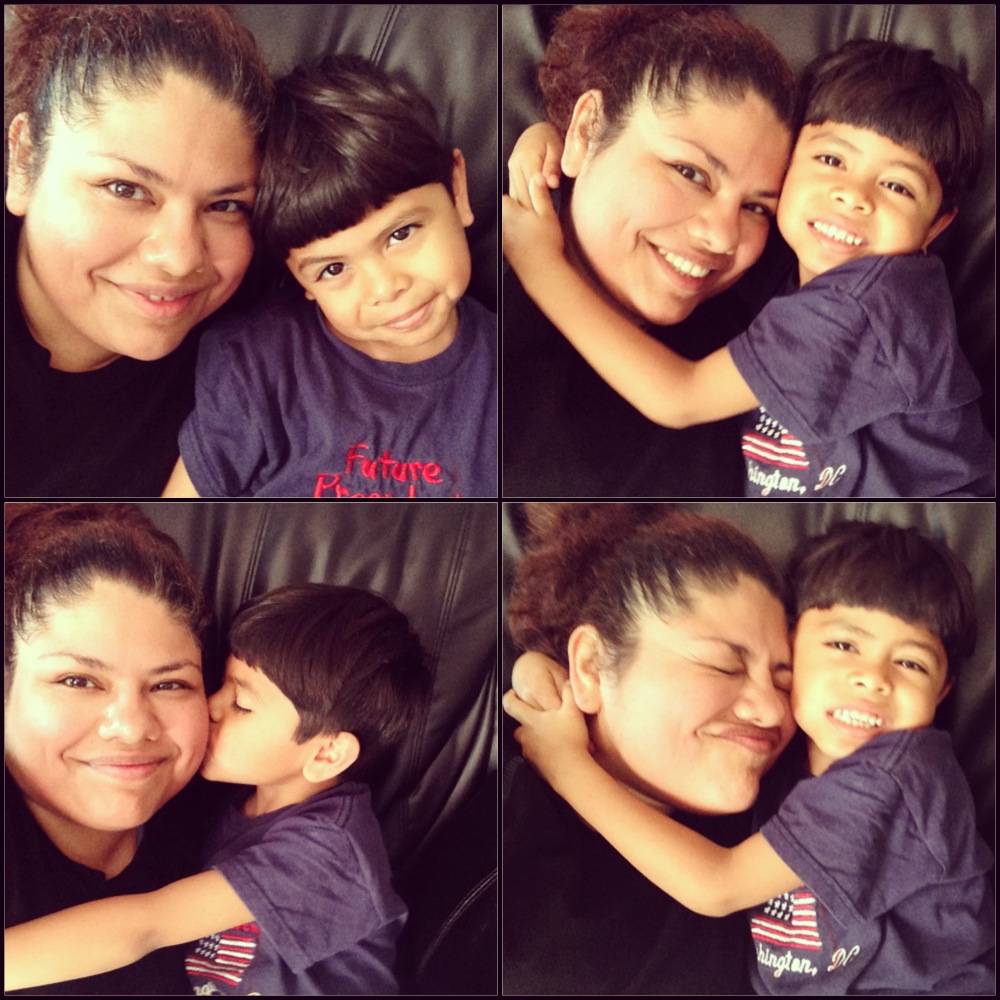From JUAN: Hey friends! Today’s guest post is from my good friend Sybil Sanchez who brings up quite the interesting question about hugging in Latino culture. I think I used to feel kind of weird about hugging too, including and especially with my own family, but now, those days are behind me. Hugs are a great way of letting people know that you care for them, that you’re happy to see them, or that you are there for them in difficult times. I hug everyone now and usually they reciprocate. Do you hug? Read the post and share your thoughts.
I think as a whole Latinos are viewed as friendly “touchy-feely” people. You know, we kiss on the cheeks, we hug to say hello… at least we’re supposed to. And well, that’s pretty “touchy-feely” if you ask me. I say we are supposed to because I am not entirely all that comfortable with doing either yet. I am sad to report I fall under the slim category of non-hugging Latinos.
While el saludar a la gente con mucho cariño comes very naturally to some Latinos, it doesn’t for me. With those who I see frequently and whom I know like to hug and kiss for hello and goodbye, I am already comfortable and don’t mind at all giving them a hug and a kiss (or two on the cheeks). It’s the people who I’m just meeting for the first time that can sometimes send me into a panic about how to say hello.
Have you ever been in a situation where you’ve had to stop and ask yourself: “okay, wait… do I hug, kiss, or only shake hands with this person?”
I do it all the time. It only gets worse or super-awkward when the other person is a non-hugger as well. In those first couple of seconds after being introduced you are both trying to figure out whether or not to go in for a hug. At that point is when I usually lean in going in for the hug, oh but wait, we’re just shaking hands instead …it’s too late to go back now! The other person now feels obligated to hug you back and as they lean in you put out your hand and what ends up happening is a mess of a half-hug-that-turns-into-a-handshake move. It’s so embarrassing for all parties involved. I stress so much in those first introductory encounters, ¡Hay Dios! ¿Qué hago?
This weirdness about hugging bugs me so much that I’ve actually spent a lot of time analyzing where it stems from. I think the only real answer to that question is that I come from a family of people who don’t really hug each other. After our childhood years, I don’t remember us hugging our parents very often. We know we love each other. We express that cariño in different ways, although now that I think about it I’m not really sure how exactly. But we do love each other very much. I would never question the strong bonds between us just because we don’t hug every time we see each other. I do have to admit, though, that sometimes I do wish we were more acostumbrados to hugging.
As a matter of fact, one of my biggest regrets (if not the biggest one) in my life stems from a hug that I never gave to my grandfather. My abuelita had just passed away in a terrible bus accident; we were all heartbroken; and as we made our way to Mexico I had promised myself I would hug my abuelito when I got there. Only when we were there I just couldn’t bring myself to do it. I was there to be at his side and I just couldn’t do it. Seeing him sitting there in the dining room, at the table, looking so sad and beaten by this tragic reality, I froze. I didn’t want to hug him and make him sadder, and I didn’t want the hug and kiss to make me look weak. I had to be strong for him so I avoided that hug.
I made the mistake of thinking that there would more time tomorrow for us to hug. There wouldn’t be. He died a few days later in a car crash as well, and I never got to give him that hug and kiss.
After something like that, you would think I would understand the importance of hugging everyone I love all of the time… but then again, old habits are had to break. I’m trying to get better about it everyday. Where I am 100 percent comfortable with hugs and kisses all of the time is with my children. I don’t want them to feel the same awkwardness about hugging. I hug them every single day and kiss them too. I tell them to go and hug their grandparents, their tíos y tías, hoping that maybe this way they won’t feel so weird about a hug when a friend or colleague leans in for one in their future.
I’m still working on getting used to receiving and giving hugs. What about you?
Do you have this hugging thing down or are you a non-hugger like me?




3 thoughts on “Latinos who don’t hug and kiss to say hello: It does happen & this is one Latina’s story”
I’m a non-Latina married to a Mexican so I really struggle with this. My parents would give me a little pat on the shoulder when I was feeling down. That is the extent of touchy-feely I knew. I also had the habit of hanging back but I realized people are gonna think I’m a goofy gringa no matter what I do so now I just go for the hug. I have noticed there is big difference in different Latinos though. Yes a lot people do kissy huggy but my actual in-laws all do a formal handshake. Every time they see you. That took me a while to get used to too 🙂
I too am a non-Latina married to a Mexican . . . and it’s a good topic, I’m glad you brought it up! My parents were not physically affectionate with me so it’s been a bit of a struggle for me in my adult life but I think I’m doing pretty good with the cheek kissing and some hugging too! Still don’t hug my mom much but as you mention, hopefully the love is felt in other ways! Living in Mexico for 2 years (and encountering very affectionate people for the most part) did not prepare me for the formal handshaking of my in-laws. They hug their grandkids, including our kids, but for the most part don’t hug the other adults in the family except on special occassions. On the flip side, my girlfriend who is Guatemalan, said she has seen so much human trafficking through her line of work, that she has always given her son the ability to decide who he wants to hug and who he doesn’t. While that isn’t the topic of your blog, I did think that the whole concept of people respecting the boundaries of others is important.